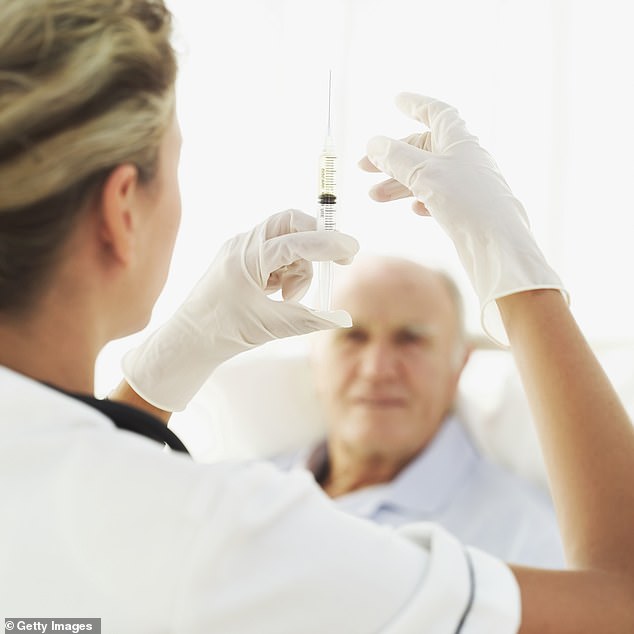I would like to continue enjoying my sexual life, but in recent years erectile dysfunction has made it impossible for me. I tried all the usual alprostadil pills and injections. You mentioned earlier a treatment called Trimix – could it be worth trying or at 93 should I accept the inevitable?
Name and address provided.
Dr. Scurr responds: I applaud your intentions and I don’t think you are yet at the stage where you have to accept the inevitable: age should not be a barrier.
Trimix is a cocktail of three medications (alprostadil, papaverine and phentolamine) that help relax the muscles around the blood vessels that supply the penis and improve blood flow, thus helping to achieve an erection.
The advantage of the triple mixture is that each of the drugs acts differently, thus maximizing the benefit. What’s more, the effects are usually stronger and longer lasting than those of Viagra-type medications alone.
There is a risk of side effects, especially priapism, an erection that lasts four hours or more, or the development of scar tissue. I suggest consulting your family doctor. The other disadvantage is that patients prescribed Trimix usually require an administration lesson, as the medication is administered by injection at the base of the penis about 15 minutes before sexual intercourse.
Trimix, a mixture of three medications, helps relax the muscles surrounding the blood vessels that supply the penis (image taken by models)
A prescription for this injection usually requires a referral, through your primary care physician, to a urologist interested in the treatment of erectile dysfunction. Trimix is generally offered only to those for whom Viagra-type medications are not helpful, and is effective in 85 percent of men.
It’s also important to have a blood test to check that you don’t have undiagnosed type 2 diabetes or low levels of the hormone testosterone, both of which can cause erection difficulties. If the blood test reveals either, then treatment for that underlying cause may help.
However, if Trimix is suggested, I hope you find it useful.
My husband was diagnosed with Parkinson’s disease 18 months ago and was prescribed co-careldopa. His problem is sleeping: it takes him a while to fall asleep at night, but during the day he suddenly falls asleep and can sleep through England! Is there anything we can do to help you sleep through the night while staying awake during the day?
Paula Ritchie, London.
Dr. Scurr responds: Patients with Parkinson’s disease often experience sleep disturbances as a result of the neurological changes caused by the disease.
Related sleep problems include rapid eye movement (REM) sleep behavior disorder, in which the affected person does not become paralyzed (as is normal during dreams), but instead acts out dreams, which may involve talking, scream or kick.
Other disorders include insomnia, restless legs syndrome (uncomfortable sensations usually in the legs, often temporarily relieved by moving), and excessive daytime sleepiness, which worries her husband.
The pattern you describe is known as a day-night reversal. This is where the biological clock is altered, due to the degeneration of nerve pathways in areas of the brain that control our sleep-wake cycles.
Your husband has been prescribed co-careldopa to control his Parkinson’s symptoms, but it can cause excessive daytime sleepiness and sudden sleepiness. Changing your medication may be able to relieve the sleep disorders you describe.
I suggest you need your neurologist’s opinion, possibly along with expert advice at a Parkinson’s sleep clinic.
I hope that a specialist periodically reviews your husband’s illness. If not, you should press your GP for a referral.


